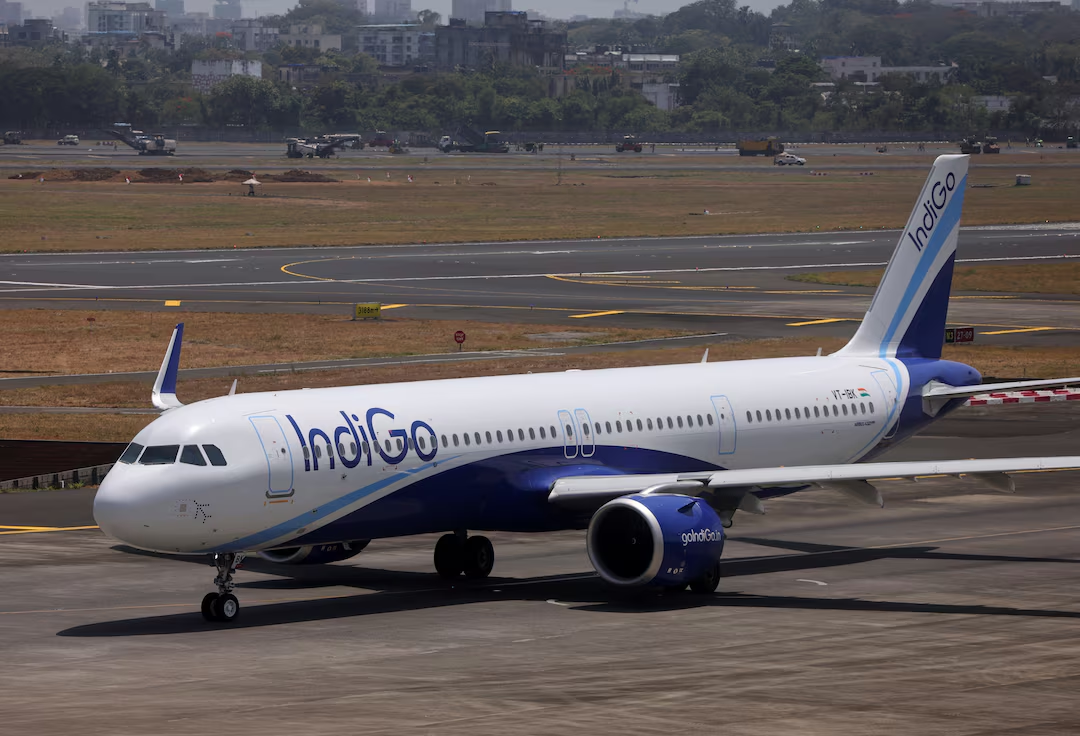At least 13 flights have received hoax social media bomb threats since Sunday (Oct. 13), causing diversions and disruption to hundreds of passengers travelling with Indian airlines.
The threats were issued by unidentified users on X (formerly Twitter) before being debunked as hoaxes following aircraft security inspections. Law enforcement authorities are investigating the sources of the threats.
Airline representatives have emphasised that all passengers on disrupted flights are safe.
Who is sending bomb threats to Indian airlines?
On Tuesday, Mumbai police detained a 17-year-old boy from Chhattisgarh in connection with bomb threat posts on X.
The suspect’s actions are allegedly linked to an ongoing dispute with a 31-year-old man, whom he attempted to implicate in his online threats.
According to a police officer:
“On Tuesday, the minor was questioned in the case. After technical analysis indicated his role, he was detained and presented before the Juvenile Justice Board (JJB) that sent him to four-day custody for police inquiry.”
The Ministry of Civil Aviation is working with police to find the perpetrators of the hoax threats.
Director General of the Bureau of Civil Aviation Security (BCAS) Zulfiquar Hasan commented:
“All our flights are safe and the Indian skies are absolutely safe. We are confident of tracing all those behind these threat messages and very strict action under law will be taken against all of them.”

What happens when Indian airlines receive bomb threats?
All Indian airports have a Bomb Threat Assessment Committee that considers the severity of each threat. Flights are grounded, diverted, forced into emergency landings or evacuated accordingly. Aircraft are moved to isolated zones as a precaution, baggage is removed for re-screening and passengers are told to disembark. The aircraft undergoes security checks conducted by bomb squads, sniffer dogs and police teams. Where threats occur abroad, officials cooperate with international authorities to enact security protocols.
Which Indian airlines have received hoax bomb threats?
IndiGo
On Sunday, IndiGo flight 6E848 carrying 169 passengers from Coimbatore to Chennai was delayed after a hoax letter was found prior to take-off.
On Monday, flights 6E1275 and 6E56, respectively bound for Muscat, Oman and Jeddah, Saudi Arabia, received security alerts before departing from Mumbai airport. The aircraft were taken to isolated bays for mandatory checks in line with safety protocols.
On Tuesday, flight 6E651 from Mumbai to Delhi made an emergency landing in Ahmedabad after an unidentified X user claimed a bomb had been placed on the aircraft. Around 200 passengers and crew deplaned while checks were completed.
IndiGo representatives commented:
“Ensuring the safety and security of our customers and crew remains paramount in all facets of our operations. We worked closely with the relevant authorities, and standard operating procedures were followed.”
The same day, flight 6E98 from Dammam, Saudi Arabia to Lucknow was diverted to Jaipur following a bomb threat. Passengers disembarked while bomb disposal teams and sniffer dogs carried out checks. Low-cost airline IndiGo has encountered similar threats in the past.
Air India
On Monday, Air India flight AI119 from Mumbai to New York made an emergency landing in Delhi after a bomb threat was posted on X. The 239 passengers on board disembarked and waited in a holding area while the aircraft underwent security checks.
Air India stated:
“Our staff on the ground are making sure to minimise the inconvenience caused to our guests by this unexpected disruption.”
On Tuesday, flight AI127 from Delhi to Chicago was diverted to Iqaluit Airport in Canada following an online security threat. The aircraft and its 191 passengers were re-screened before departing for Chicago on a Canadian Air Force aircraft at 3:54 a.m. UTC, over 18 hours after the flight was diverted. In a statement, Air India thanked
“Canadian authorities and authorities at Iqaluit airport for their support and assistance extended to the passengers and Air India during this unexpected disruption.”
Air India Express
Air India Express, a subsidiary of Air India, also faced bomb threats on Tuesday. Flight AXB684 from Madurai to Singapore was escorted away from populated areas by two Singapore Air Force jets.
Singapore’s Defence Minister, Ng Eng Hen, praised:
“the dedication and professionalism of our SAF [Singapore Armed Forces] and Home Team that keeps us safe in our homes, even when threats exist around us.”
Air India Express flight IX765 from Ayodhya to Bengaluru was delayed by 4 hours following a bomb threat on Tuesday.
Akasa Air
On Tuesday, pilots aboard Akasa Air flight QP1373 from Bagdogra to Bengaluru implemented safety procedures after a threat was sent via social media. Upon landing safely in Bengaluru, all passengers disembarked while the plane underwent checks.
On Wednesday, authorities received a threat related to flight QP1335 from Delhi to Bengaluru. The aircraft, which was carrying 184 people, returned to Delhi to make an emergency landing.
SpiceJet
On Tuesday, SpiceJet flight SG116 from Darbhanga to Mumbai received a bomb threat via X during its descent. The aircraft landed safely and was moved to an isolation bay.
A SpiceJet spokesperson noted:
“All passengers disembarked normally, and security agencies were immediately notified.”
Alliance Air
On Wednesday, a threat was made to Alliance Air flight 9I 650 from Amritsar to Dehradun. All 32 passengers were evacuated from the plane at Dehradun airport.
Airport Director Prabhakar Mishra stated:
“The airport dog squad team also reached the spot, and the aircraft was thoroughly searched,” adding, “Fortunately, no bomb was found on the flight.”

With the third-largest domestic aviation market in the world, pressure is on for Indian authorities to put a stop to the disruption caused by online hoaxes.
Have you heard of flights disrupted by security threats? Let us know in the comments below!










This was a really engaging read—thanks for sharing!